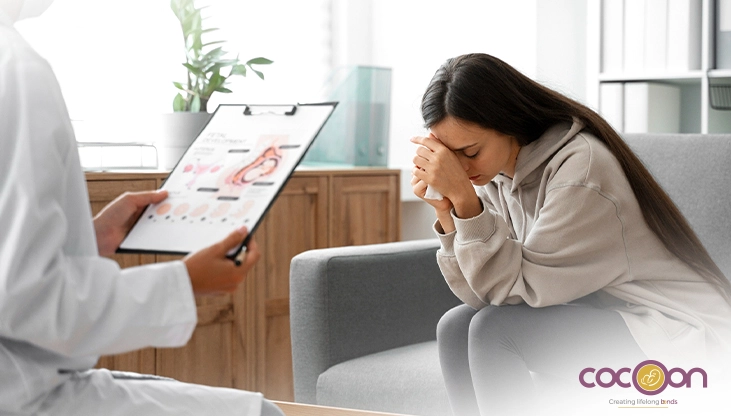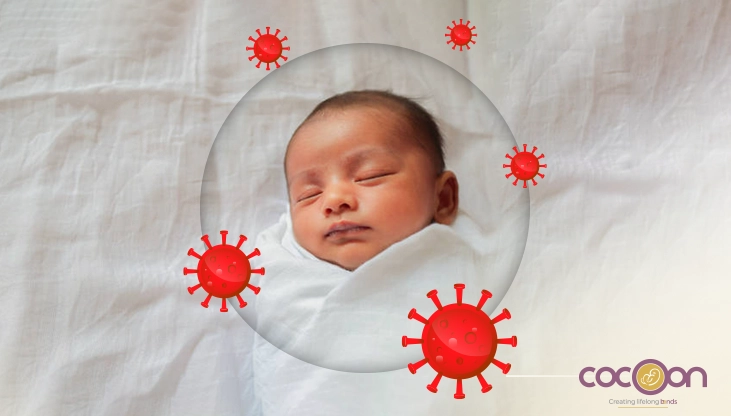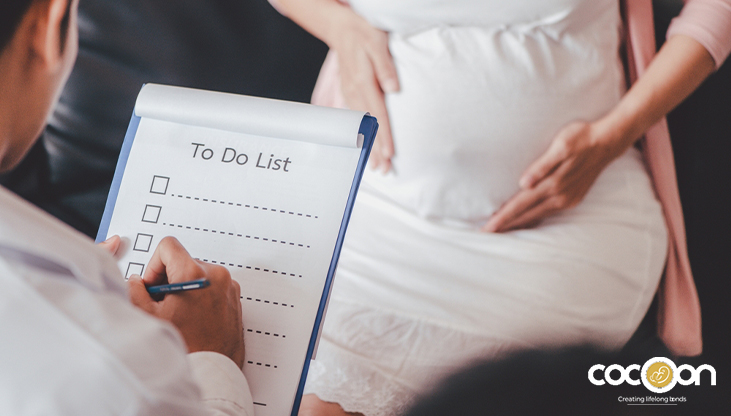Pregnancy brings many changes to your body—and yes, that includes your digestion. Bloating and gas aren’t the most talked-about symptoms, they’re actually very common.
As your body adapts to support your growing baby, hormone changes begin to relax your digestive system. This slowdown can lead to trapped gas, a bloated belly, and frequent burping or flatulence. Add to that an expanding uterus puts pressure on your intestines, making things even more uncomfortable.
Fortunately, these symptoms are typically harmless—and there are many gentle, safe ways to help relieve the pressure.
What Causes Bloating and Gas During Pregnancy?
Throughout pregnancy, a woman's body undergoes many changes to accommodate the developing baby. Of these changes, perhaps the most important are the hormonal alterations, which influence a wide range of bodily processes, among them digestion. Knowing the reason for bloating and gas is the key to treating these symptoms successfully.
1. Hormonal Changes
One of the primary offenders in triggering bloating and gas during pregnancy is the surge in the hormone progesterone. Progesterone is also effective at relaxing uterine muscle, but also causes the digestive tract muscles to relax. By relaxing the digestive tract muscles, this slows digestion through the body. This prevents as much of a rush from going through your intestines because it allows gas to accumulate to a greater extent. This may lead to fullness or a sensation of being uncomfortable in the abdominal area and to bloating.
2. Slower Digestion
As the pregnancy advances, the expanding uterus starts to exert pressure on the stomach and intestines. This pressure can also delay the digestive process, causing gas buildup. The delayed digestion process not only causes bloating but also contributes to other typical pregnancy symptoms such as constipation. In a few instances, the delayed movement of food through the digestive system can cause more severe bloating and discomfort.
3. Increased Gas Production
Pregnancy may make your body produce more gas than normal. This is because of the hormones that slow down digestion. When food moves more slowly through the digestive system, it has more time to ferment in the intestines, resulting in the production of excess gas. You might experience a sense of being gassy, particularly after consuming meals that are less easy to digest, like foods with high fiber content or foods that contain fat.
4. Constipation
Another cause of bloating and gas during pregnancy is constipation. Constipation is prevalent during pregnancy due to hormonal fluctuations that decelerate the digestive system. The expanding uterus also puts pressure on the intestines, making it harder for stool to move through the digestive tract. When you are constipated, gas becomes trapped in the intestines, causing bloating and discomfort.
When Does Bloating and Gas Begin During Pregnancy?
Bloating and gas may begin as early as the first trimester of pregnancy, and most women experience these symptoms throughout their pregnancy. They are, however, most prevalent during the first and second trimesters because the body is experiencing drastic hormonal changes to accommodate the growing baby.
During the first trimester, gas and bloating are usually due to a rise in progesterone, which makes the digestive tract relax. As the pregnancy continues, the expanding uterus can also be a cause of gas and bloating by putting pressure on the digestive system.
For most women, these symptoms start fading as their body adapts to the changes. But for a few women, gas and bloating can persist throughout pregnancy.
What are the Common Symptoms of Pregnancy Bloating and Gas
The most typical signs of bloating and gas during pregnancy are:
1. A Swollen or Full Stomach
You might find that your stomach is fuller than normal or even feels a little swollen. The fullness can be felt after eating, but in other instances, it will persist throughout the day. The pressure on your intestines from your expanding uterus will exacerbate the bloating.
2. Frequent Burping or Flatulence
Pregnant women usually get a rise in flatulence and burping, or passing gas. This is caused by the changes in hormones that loosen the muscles of the digestive tract, allowing air to accumulate in the stomach. Slowed digestion of food also plays a role in producing more gas in the intestines.
3. Abdominal Discomfort or Pain
Trapped gas can make some women feel pain or discomfort in their belly. The discomfort may range from mild cramping to sharp, bloating discomfort. The discomfort is temporary but can be irritating when it occurs.
4. Constipation
As previously stated, constipation is one of the usual pregnancy symptoms. When you are constipated, the stool is passed through the digestive tract slowly, causing discomfort and bloating. Constipation can create additional gas buildup in the intestines, exacerbating the bloating.
How to Relieve Gas and Bloating During Pregnancy?
Although bloating and gas are common during pregnancy, there are several ways to alleviate these symptoms and make yourself feel more comfortable. Below are some effective tips for managing bloating and gas during pregnancy:
1. Eat Smaller, More Frequent Meals
One of the best methods of preventing bloating is consuming smaller meals throughout the day. Rather than consuming three large meals, try having five or six small meals. This will prevent overeating, which stretches the stomach and causes bloating. Smaller meals also facilitate digestion by enabling the stomach to digest food more efficiently.
2. Avoid Gas-Producing Foods
Certain foods create more gas like beans, cabbage, onions, broccoli, and carbonated drinks. Limit or cut back on these foods, especially if you find that they trigger your bloating and gas. Opt for easily digestible and less gas-forming foods such as lean protein, whole grains, and fruits like bananas or apples.
3. Hydrate
Drinking plenty of water throughout the day is required to maintain a healthy digestive system. Adequate intake of water can help avoid constipation and reduce bloating. Water also helps remove excess sodium, which causes water retention and bloating.
4. Exercise Regularly
Exercise regularly while pregnant, and it may also be utilized to reduce bloating. Exercise can stimulate digestion as well as the movement of gas in the digestive tract. Pregnancy walking is a perfect exercise for a pregnant woman because it is a gentle exercise on the body but can help reduce bloating.
5. Chew Your Food Slowly
Rapid eating leads to gulping of air, which is a likely cause of bloating and gas. Eat slowly and chew food properly to aid digestion. This assists in avoiding gas in the stomach and intestines from building up.
6. Test Pregnancy-Safe Remedies
There are several pregnancy-safe remedies that you can use to help ease gas and bloating. Ginger tea, for example, is a calming agent and can help to facilitate digestion. Peppermint tea is a natural remedy that will calm the muscles of the digestive system and alleviate bloating. Always consult your healthcare provider prior to using any new remedies during pregnancy.
7. Wear Comfortable Clothing
Tight clothes can lead to unwanted pressure on your stomach, and bloating is increased. Try wearing loose, comfortable clothes that don't constrict around your waist or belly. This avoids added pressure and reduces the feeling of being full.
When Do You Need to See a Doctor?
Although bloating and gas are generally not an issue when pregnant, there are certain situations where you need to see a doctor:
- Severe or Chronic Abdominal Pain
- Blood in Stool or Vomiting:
- Severe Constipation or Not Passing Gas
Conclusion
Bloating and gas during pregnancy are common complaints most women experience, particularly in the first and second trimester. While these symptoms can be annoying, they are usually temporary and can be alleviated by making a few easy adjustments to your lifestyle, such as having smaller meals, drinking plenty of water, and regular exercising.
But if you have really bad or ongoing symptoms, it's crucial to talk with your gynaecologist so you can be assured that everything is going well. Pregnancy is a time of major changes, and taking care of both your physical and mental well-being is essential.

















